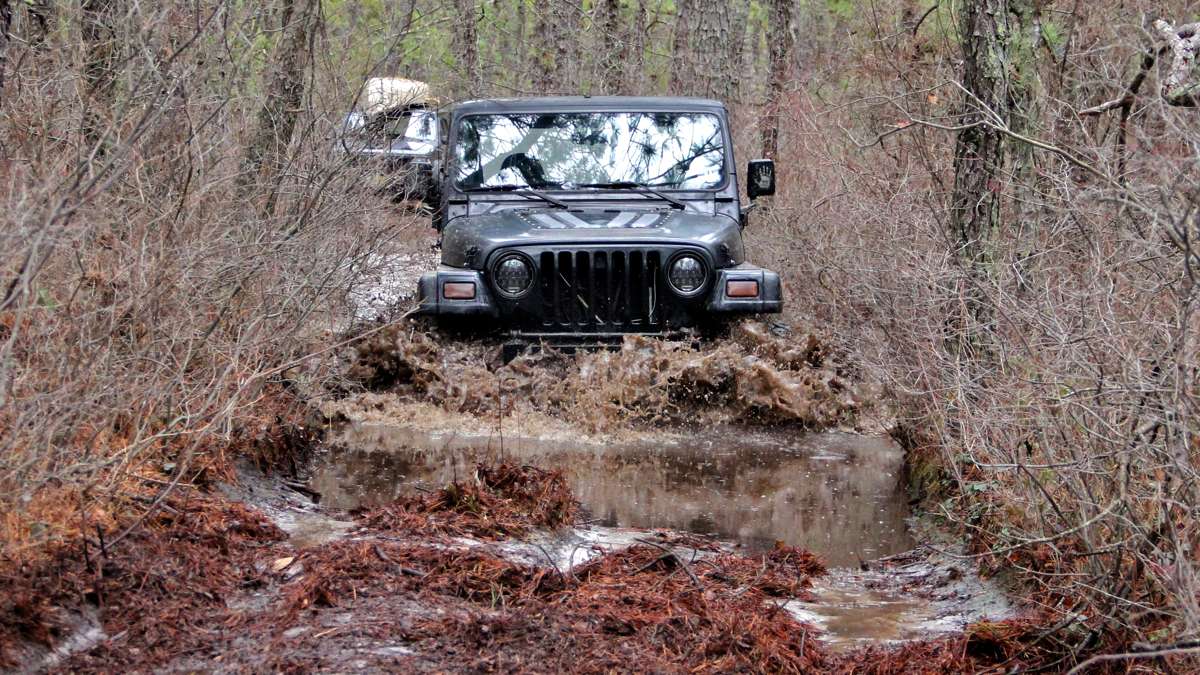N.J. launches pilot program to protect Pine Barrens’ intermittent ponds from off-road vehicles

Four-wheel-drive trucks take on a flooded road in Wharton State Forest. (Emma Lee/WHYY)
Volunteers have begun installing wooden barriers in Wharton State Forest to protect four ecologically sensitive intermittent ponds from damage caused by the illegal use of off-road vehicles, the Department of Environmental Protection’s Division of Parks and Forestry announced.
The pilot program is a component of a comprehensive enforcement and education effort to protect ecologically sensitive resources in the park, the agency said in a release.
“This effort, a collaboration of environmental groups, off-road vehicle groups that advocate for responsible use of unimproved roads in Wharton, and other stakeholders, builds upon our ongoing efforts to strike the right balance in protecting the natural resources that are unique to this region, while recognizing that Wharton has a long history of being enjoyed by varied user groups,” said State Park Service Director Mark Texel.
At 125,000 acres, Wharton, situated in the heart of the Pinelands National Reserve, is “by far” the largest in the state park system, the release said.
The state says intermittent ponds, or shallow depressions that periodically dry out as the ground water tables fluctuates, “are ecologically important because they provide breeding habitat for many of the region’s unique amphibian and plant species.”
Among others, the pond provides habitat for the Pine Barrens tree frog, which is found in only a few locations outside of the Pinelands.
According to the state, off-road vehicles traveling through the ponds during both wet and dry periods “leave deep tracks in the ponds and destroy plants that fringe them.”
The ongoing education and enforcement effort seeks to ensure that only street-legal vehicles use the forest’s roads and that they remain on clearly established unimproved roads.
The state has posted signs for off-road motorists to keep out of ecologically sensitive areas along with warning signs at 60 forest entrances stating that laws are being enforced.
A debate centering around fair access has been ongoing since the state floated a plan to close certain roads in the forest in late 2015.
WHYY is your source for fact-based, in-depth journalism and information. As a nonprofit organization, we rely on financial support from readers like you. Please give today.

